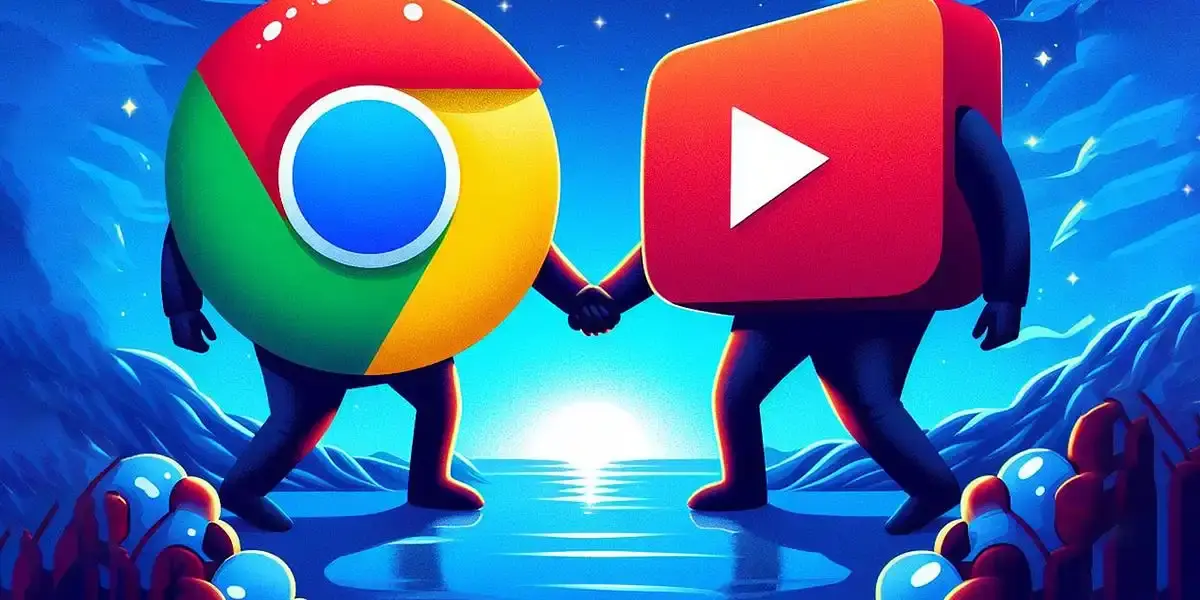- cross-posted to:
- technology@lemmy.ml
- cross-posted to:
- technology@lemmy.ml

Tech news might not understand ad blockers all the time, but this author doesn’t understand that 30,000 dynamic rules (or any limit for that matter) aren’t a lot and this still nerfs ad blockers big time.

Also limiting rule updates to new extension versions will essentially make it impossible for adblockers to outpace anti-adblock interventions.

Yes. Thank you. This article is apologia for Google, and very unhelpful. There is a reason anyone interested in controlling their own browser is unhappy with this arbitrary limit.

anyone interested in controlling their own browser
Google’s argument is that letting ad blocking extensions filter each and every web request, puts your browser under the control of the extension developers.
And… they aren’t wrong. This discussion boils down to: who do you want to control your browser, Google, or the extension developers?
Anyone interested in actually controlling their own browser, would compile it from source and create their own ad blocking extension. But that’s not happening for the vast majority, so it’s a choice in whom you trust.
(PS: I’d sooner trust Mozilla… maybe)

I’d argue that part of controlling your own browser is being able to make that decision. Manifest v3 will rob you of that ability.

Manifest v3 will rob you of that ability.
Firefox is adding Manifest v3… without deprecating the blocking API call that ad blockers use, so no, Mv3 doesn’t rob you of anything… if you were in control of your browser in the first place.

Erm, that makes all the difference. We’re talking about Google robbing you of choice. Which they are doing by replacing v2 with v3.
Of course Firefox is not doing that.

The Gell-Mann Amnesia Effect, coined by Michael Crichton:
Briefly stated, the Gell-Mann Amnesia effect is as follows. You open the newspaper to an article on some subject you know well. In Murray’s case, physics. In mine, show business. You read the article and see the journalist has absolutely no understanding of either the facts or the issues. Often, the article is so wrong it actually presents the story backward—reversing cause and effect. I call these the “wet streets cause rain” stories. Paper’s full of them.
In any case, you read with exasperation or amusement the multiple errors in a story, and then turn the page to national or international affairs, and read as if the rest of the newspaper was somehow more accurate about Palestine than the baloney you just read. You turn the page, and forget what you know.
That is the Gell-Mann Amnesia effect. I’d point out it does not operate in other arenas of life. In ordinary life, if somebody consistently exaggerates or lies to you, you soon discount everything they say. In court, there is the legal doctrine of falsus in uno, falsus in omnibus, which means untruthful in one part, untruthful in all. But when it comes to the media, we believe against evidence that it is probably worth our time to read other parts of the paper. When, in fact, it almost certainly isn’t. The only possible explanation for our behavior is amnesia.

Be that as it may, the more relevant effect to this article is the Dunning-Kreuger one. The author seems to have no idea that his dismissal of the limitations of manifest v3 means he is dismissing that this absolutely constrains what ad blockers can do, and very significantly. And his confident tone only adds to the discord he believes he is correcting.

That’s true, however note that credibility comes attached to personal identity, as the text mentions in the last paragraph. A newspaper isn’t a person, articles are written by different journalists- however when a media shows a majority of bogus articles they quickly lose credibility too

Interesting theory. A fancy way of saying the press aren’t super sleuths or credible reporters with all the facts.
I’ve been involved in about 4 incidences that made the news. None of them. 0/4 were remotely accurate outside of the total sum of the event (there was a car crash involving two vehicles). The broad strokes are there but that’s about it.
But then the news is a money making enterprise that has no real incentive to report the news impartially or even accurately. It kinda cuts into their profits (real reporting takes time, money, resources).
The take home is the shit you see on the news is essentially “based on a true story”, nothing more.

There still is plenty of proper investigative journalism, but you can’t pay a team of half a dozen experts who take six to nine months per story off the ad revenue of some website, and few people want to pay for a outlet that might publish two or three articles once a year when you could get a paper just full to the brim with dozens of current articles every hour.

Maybe the filter rules required specifically for YouTube don’t work with those rule formats, I don’t know!
That’s all you need to read from the article. The author doesn’t know how ad blockers work (which is fine, I’m also no expert) and completely ignores the ad blockers developers expertise (which is not fine).

this is what i really don’t get about people defending google’s actions here. what incentive do uBlock Origin developers have to lie about the impact google’s changes to chrome will have on the capabilities of their extension?
google and ad blocker developers are the only two real subject matter experts here. the former has ample financial incentive to not be completely honest in their claims here, so the benefit of the doubt naturally belongs to the latter.
There is no expertise in that interview, that’s the problem. It’s the Ghostery dev making vague statements that Engadget partially misinterprets and then everyone else gets wrong. The main insight there is that content blockers need their lists updated on a daily basis for YT which is not new information.

Yeah, surely you have to find out first, before writing an article titled “Tech news doesn’t understand ad blockers or Chrome extensions”? This appears to be the crux of the article, and yet the author isn’t worried about finding out? Weird.

I do want to read articles that change my beliefs and I’m willing to listen to any take that goes against the wider narrative, but nothing that was said here really challenges anything being said on most tech news sites.
Yeah news sites might not always have full understanding of the semantics but the wider piont of Google’s Manifest V3 restricting uBlock Origin capabilties and not offering an adequate solution is still very valid.

